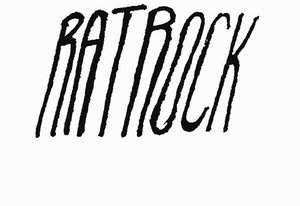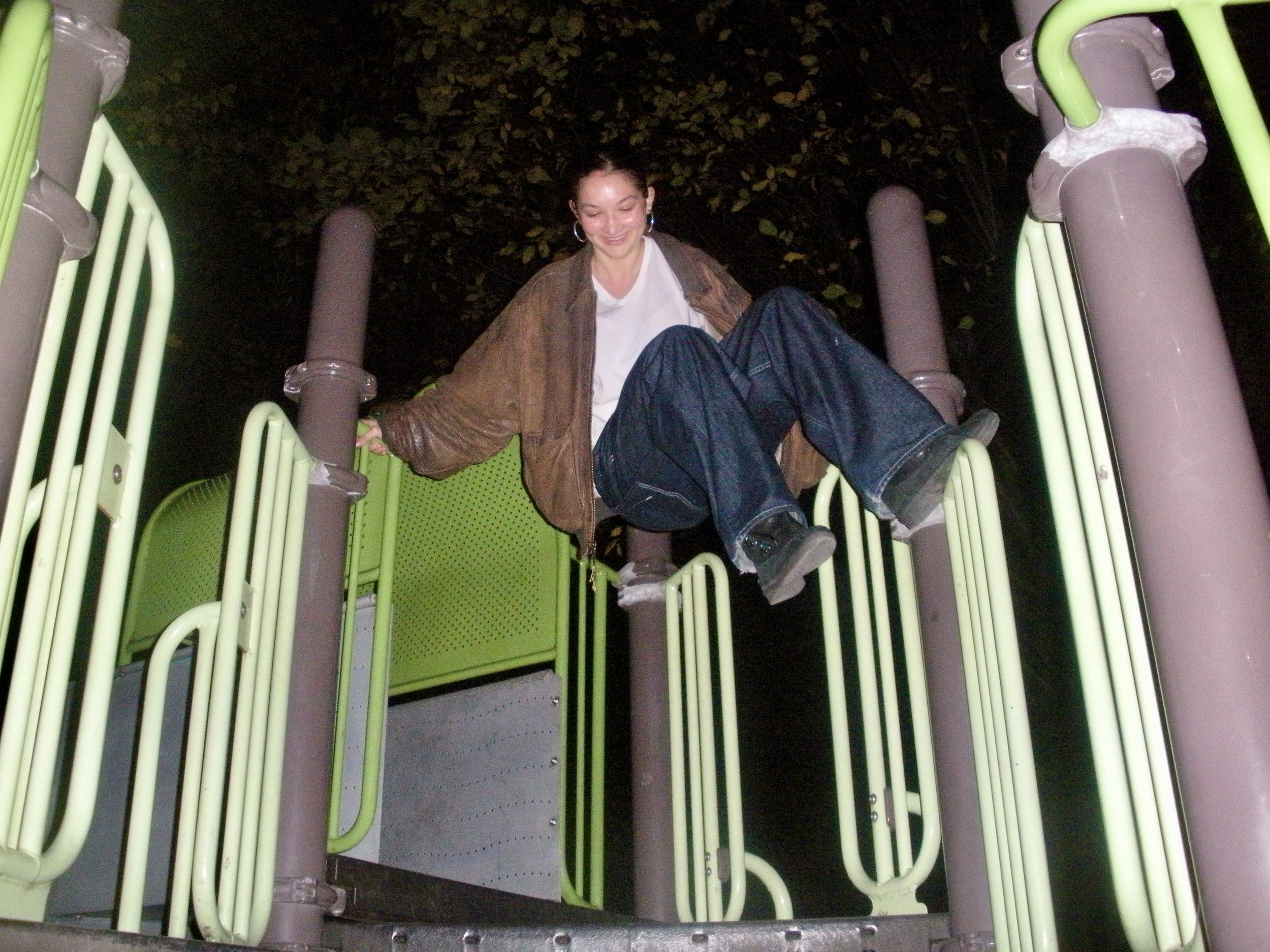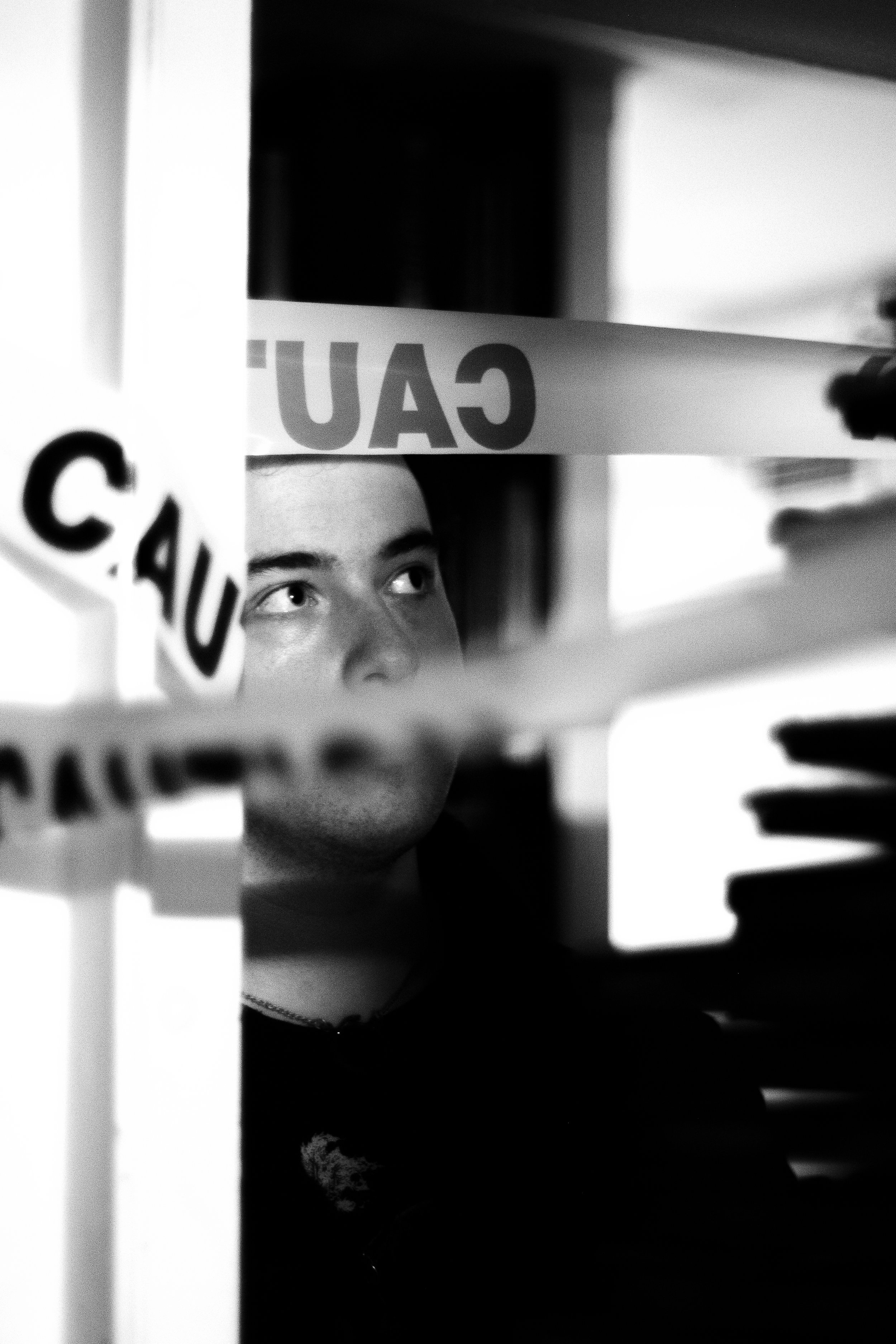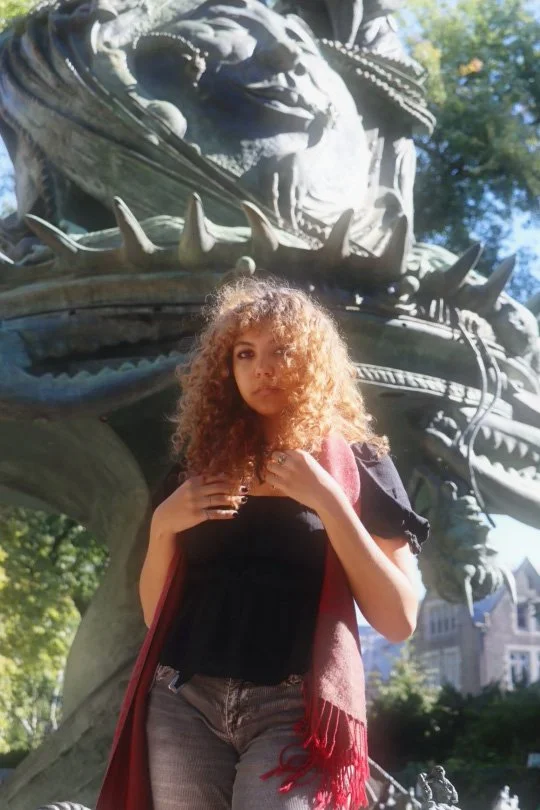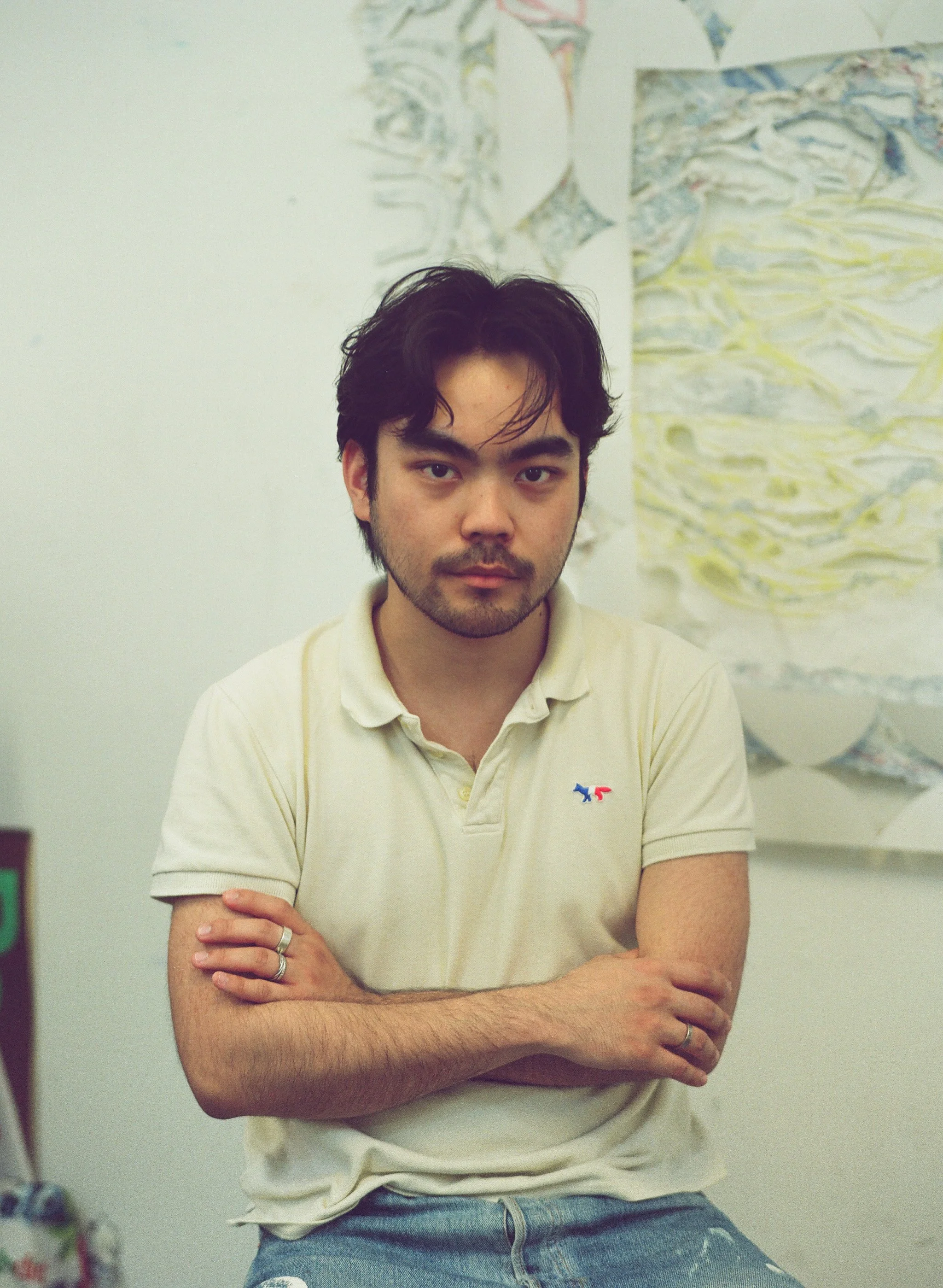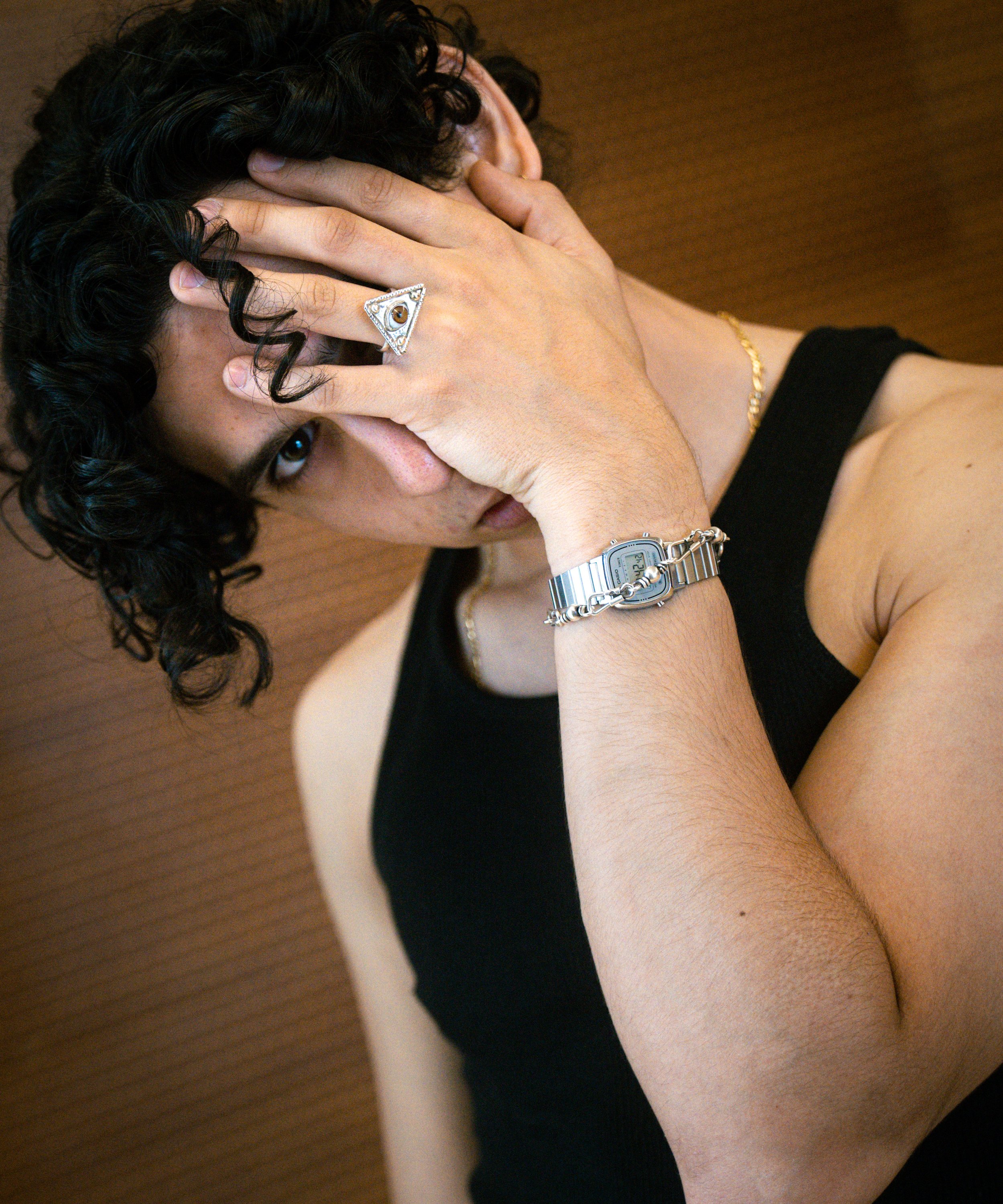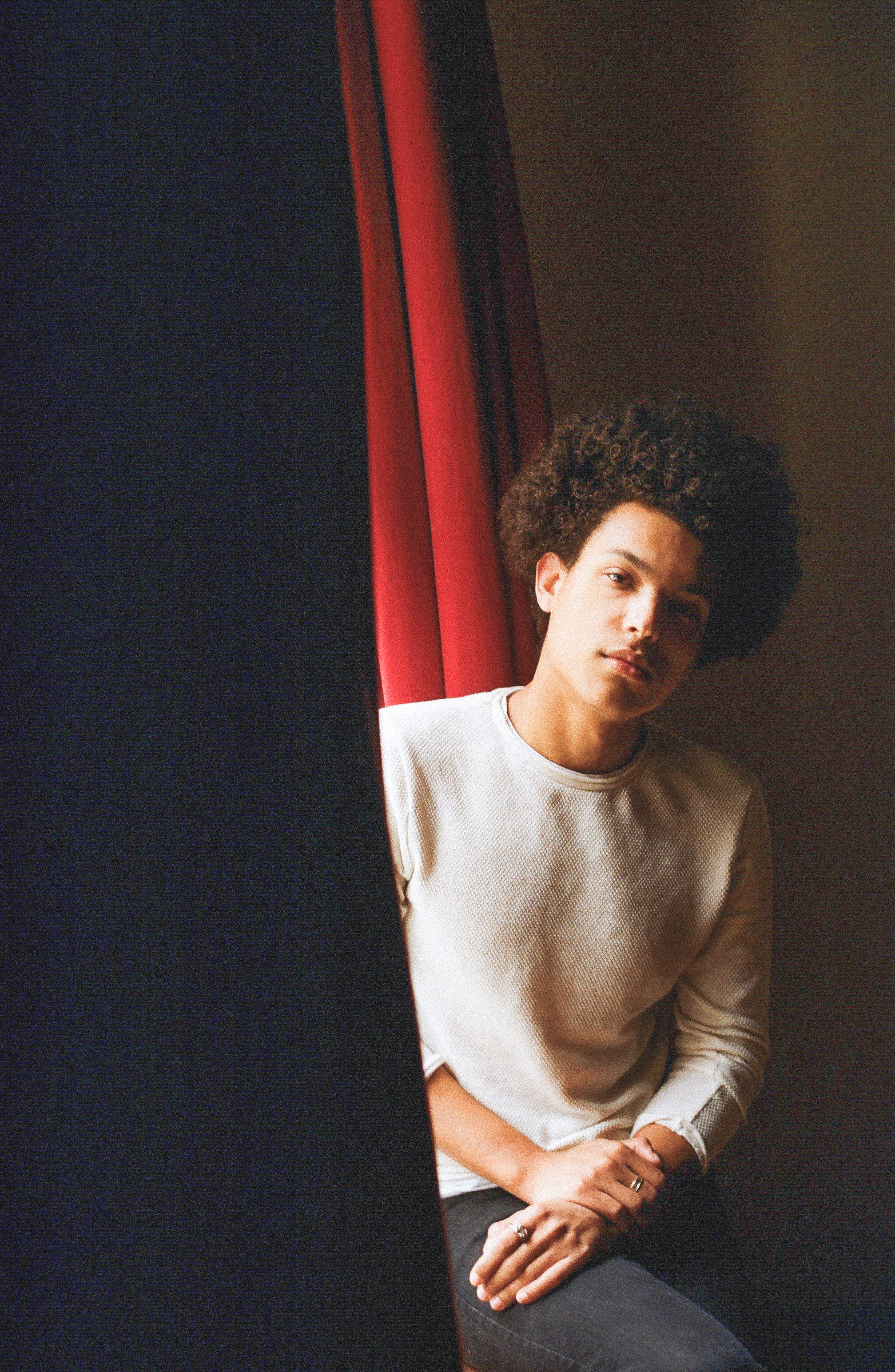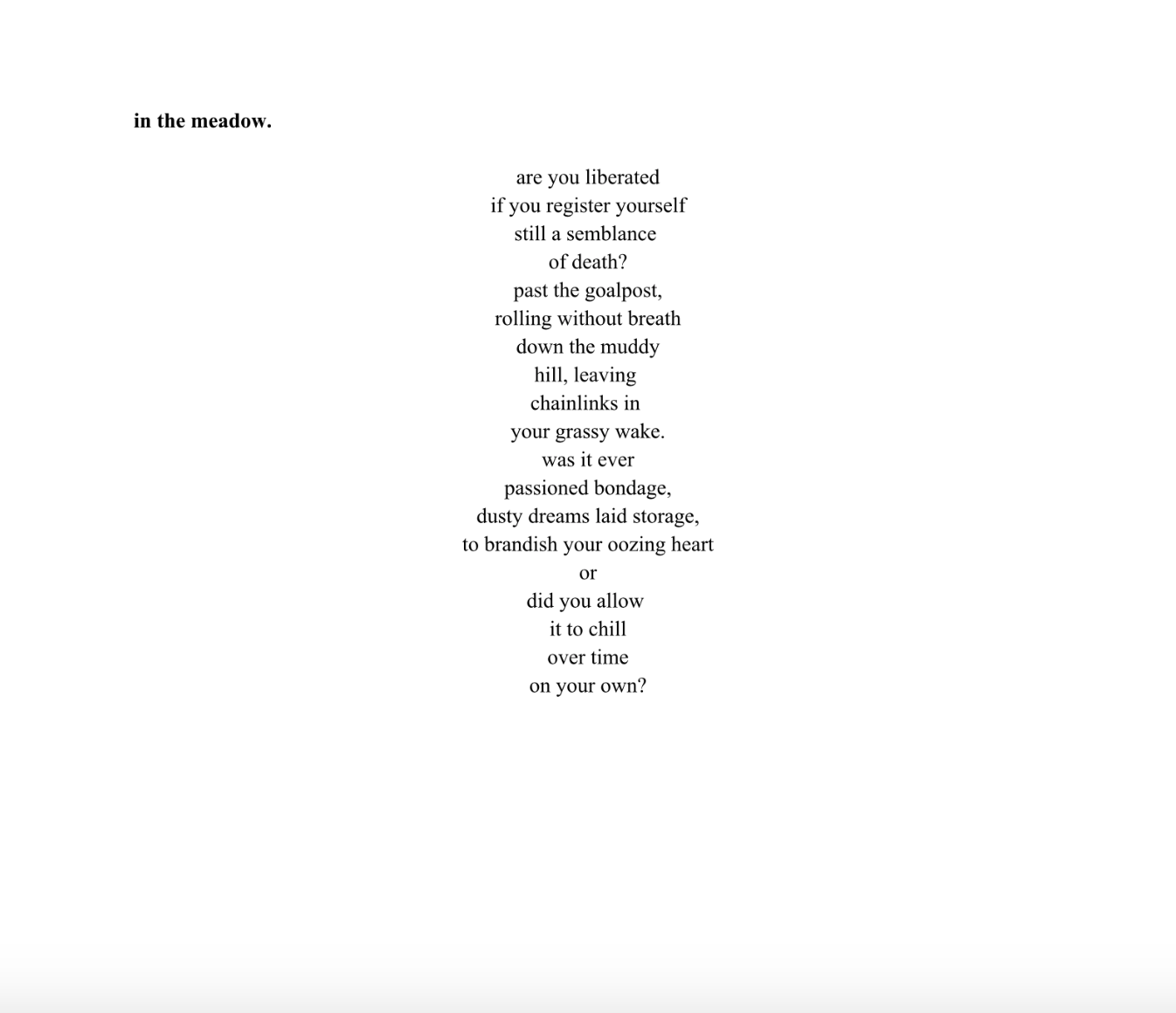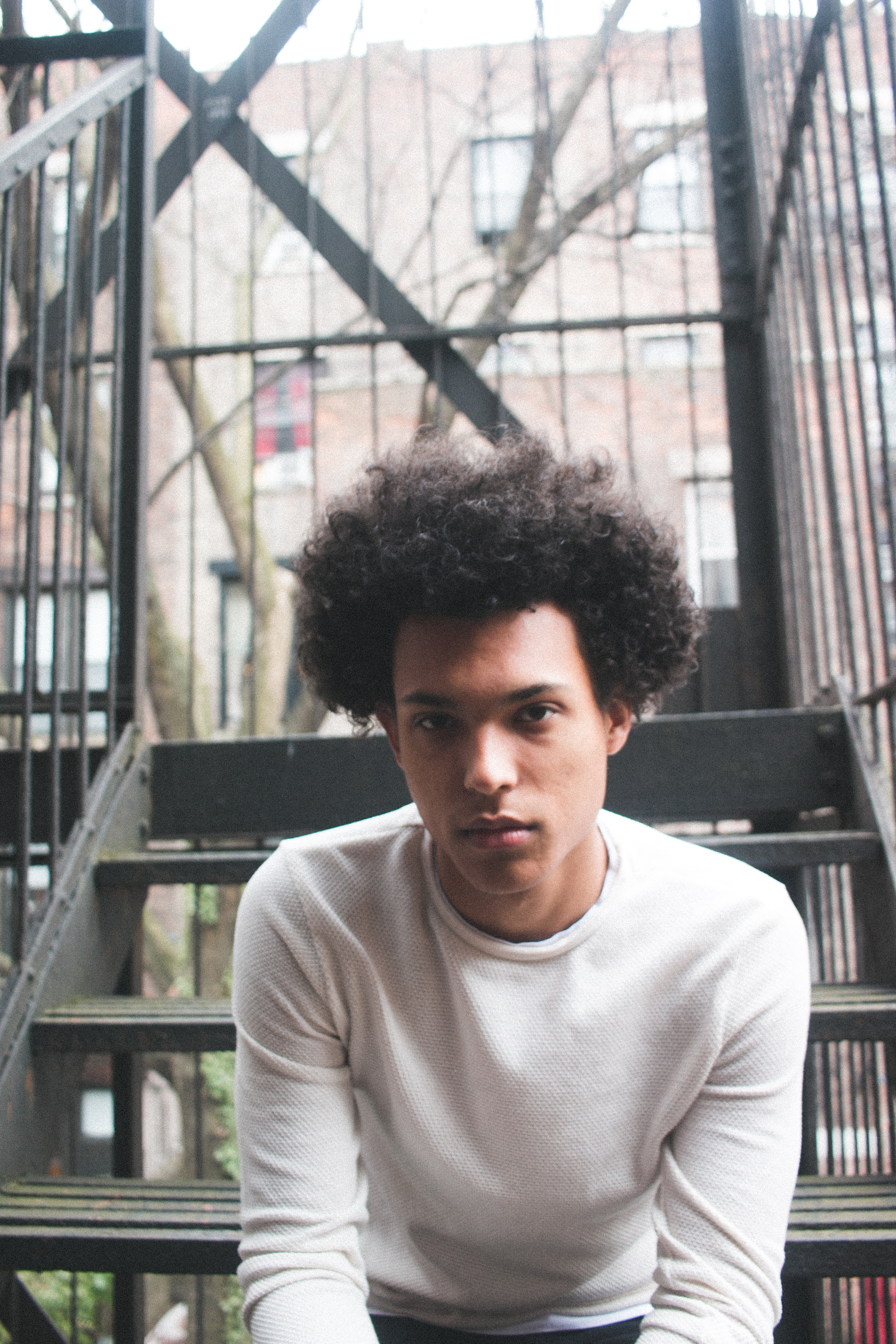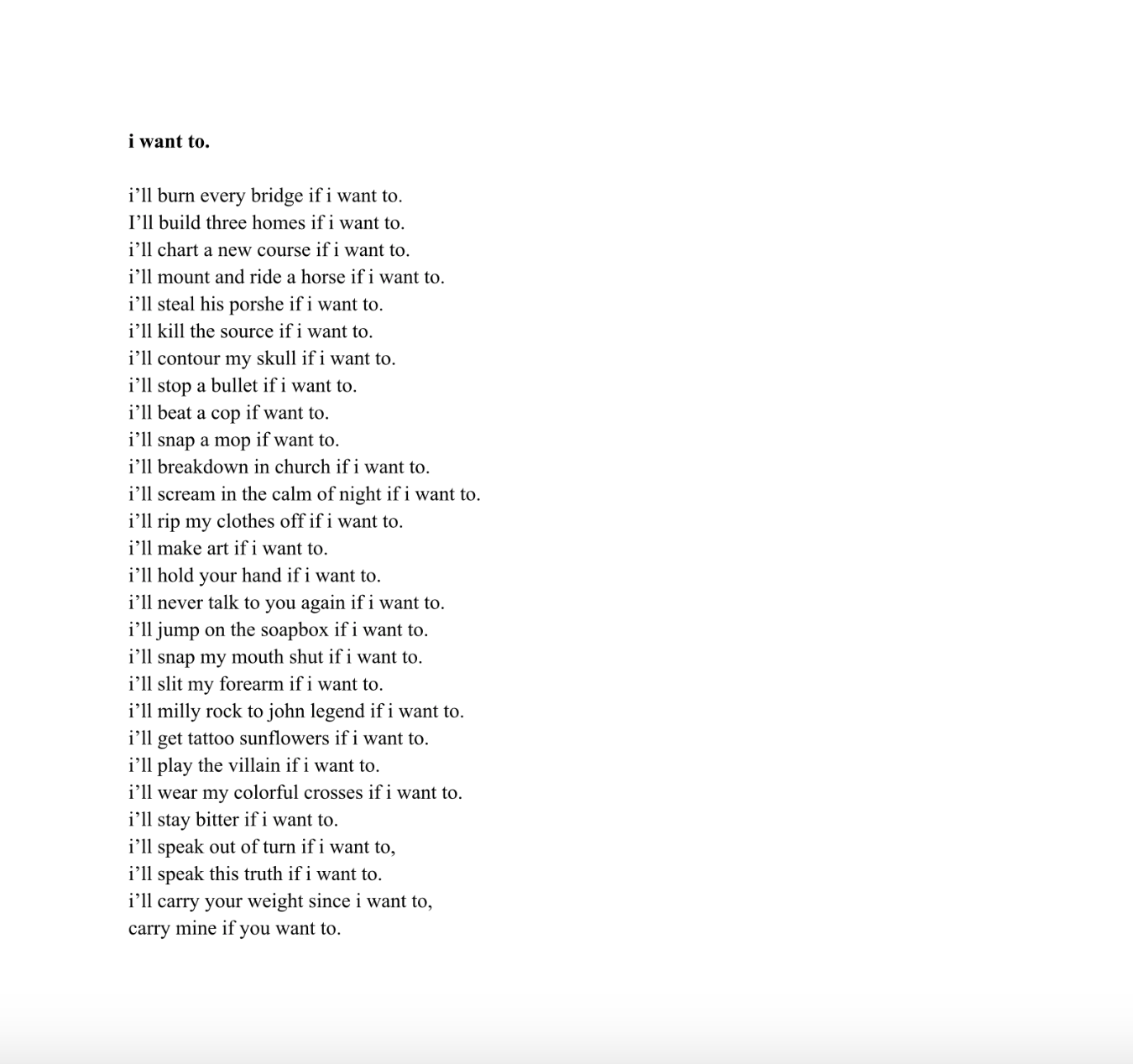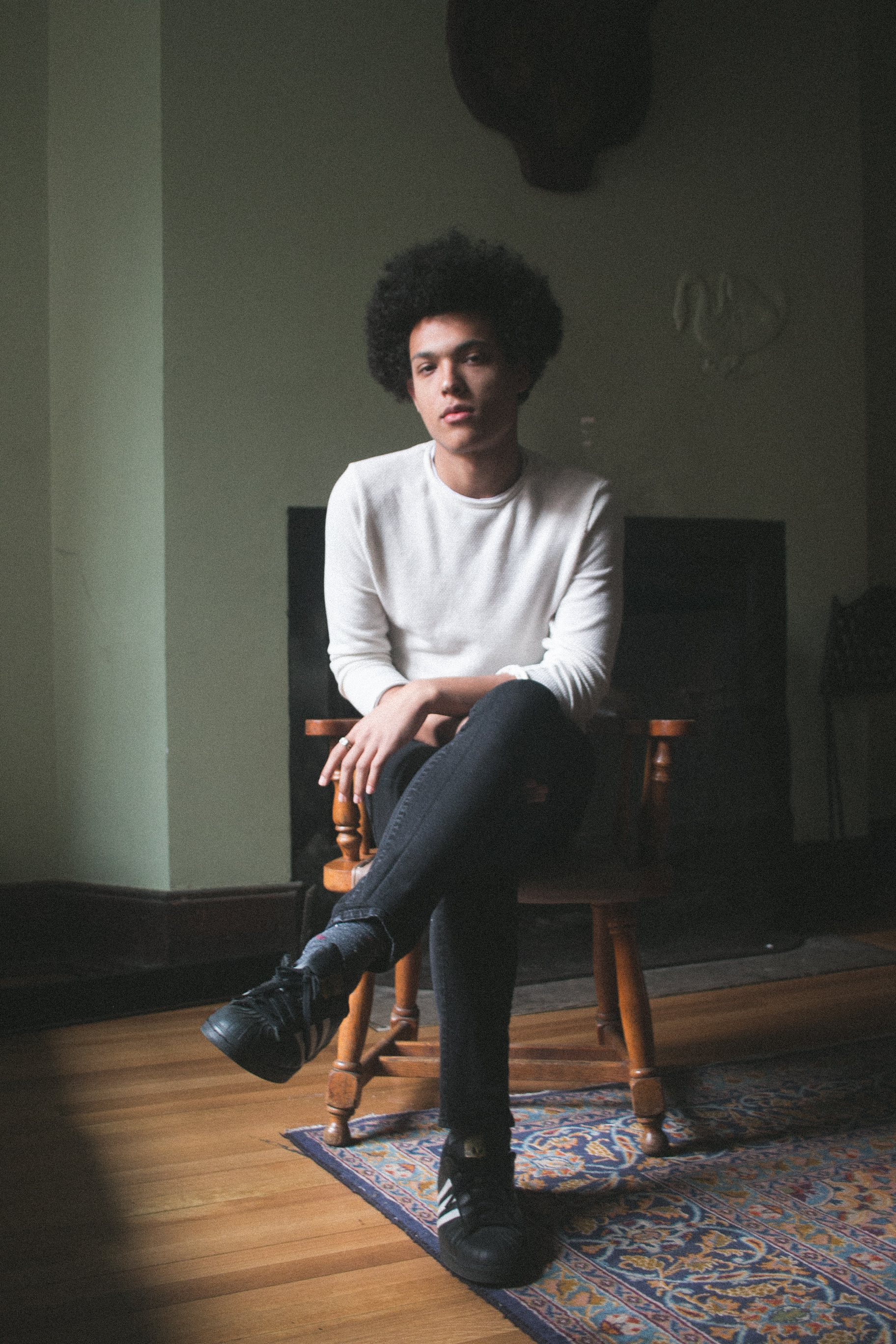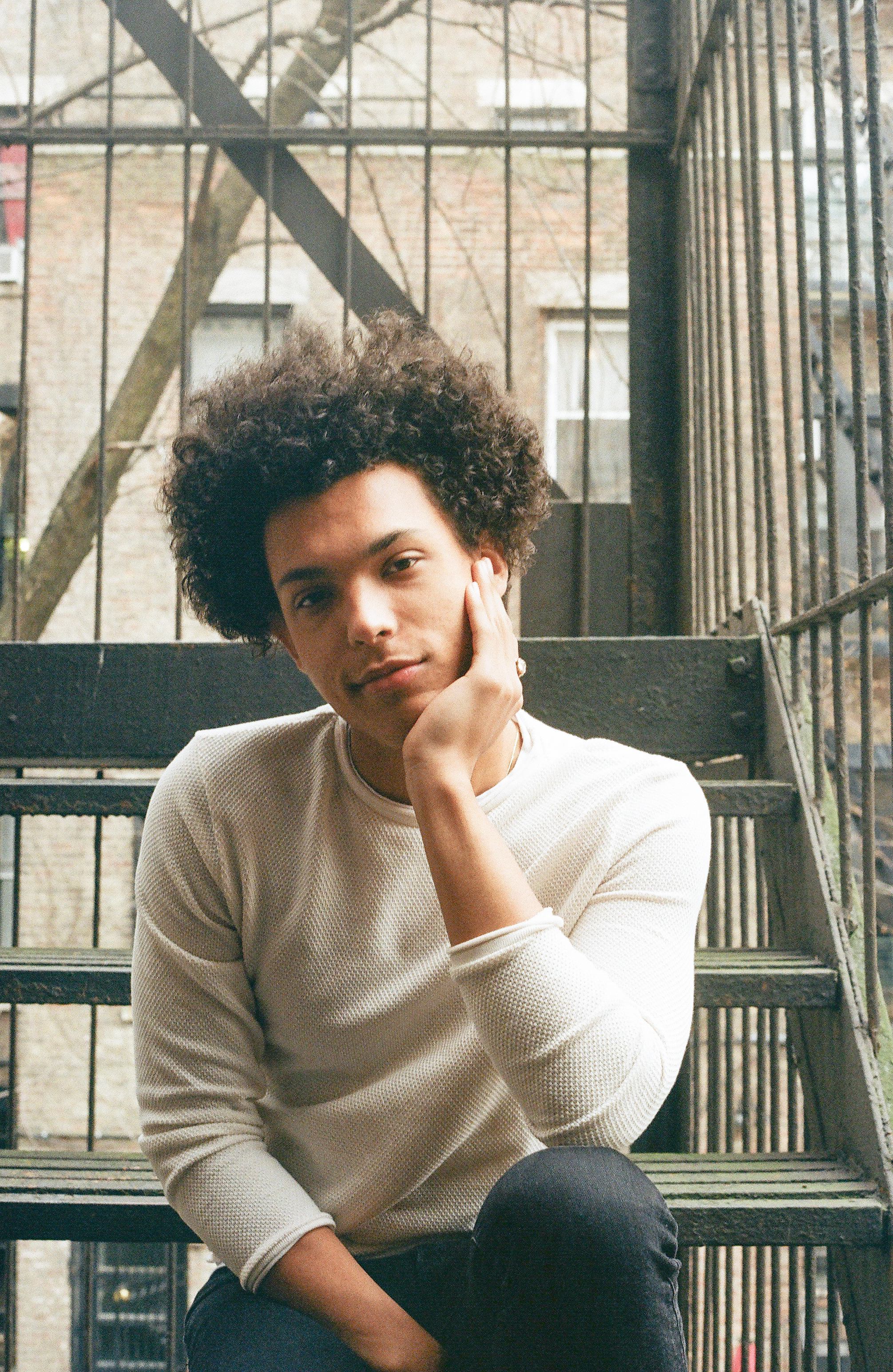Interview by Perla Haney-Jardine
Keenan T. Smith is a poet from Flint, Michigan. He’s currently a junior at Columbia University studying race and ethnicity with a possible concentration in Atlantic colonization.
Are you involved in any poetry related groups on campus? If so, which ones?
I’m a member of ADP. It’s a literary society, so that’s probably the closest thing. I’ve submitted to various publications on campus. I’ve submitted to African Diaspora, Literary Society, and Hoot’s sister magazine Holler.
Is there a certain fear in submitting poetry, and do you ever feel reluctant or scared to send it in?
It depends on what went into the poem, and what I was feeling when I was writing it. I don’t think I write anything knowing that it’ll be mine forever. So, whenever I write, I write knowing that whether it be a few years from now when I submit, or 60 or 70 years from now when I die, it’s not mine. It’s going to be whoever finds it later on. I’ve never held onto my writing like that, I’ve understood that it’s never alone.
Have Columbia and New York changed your voice as a writer?
Absolutely. When I came here, my focus was on my experience of queerness, and I feel like I lacked a lot of the vocabulary for a lot of feelings I was having. Coming to Columbia and New York, I’ve not only changed what I’m talking about and expanded the subject matters with which I’d like to engage, but I also feel like I’ve gained a larger repertoire of modes of expression in terms of vocabulary and form. I’ve been exposed to so many different ways of literary expression, there’s no way I could say that I hadn’t been impacted by the city.
What are some of your biggest inspirations as a poet?
I’d say that my biggest inspiration would be lyrics. I think that I’ve always struggled because I’ve found lyrics to be some of the most moving forms of textual expression but simultaneously felt like they weren’t legitimate enough. Like lyrics weren’t as real as poetry or fiction or prose. So I was always judging myself for doing so [writing lyrics]. I’d say my largest influences have been different song lyrics from different genres. Some of them I’ve used for who they’re coming from instead of the words themselves. Or taking the words of songs that are popular and using those to fit them into something else and having it be its own sort of style. Other times, it’s just really listening to songs on repeat and trying to listen to the melodies and the rhythms of what’s being said. I’m really trying to engage with that impression.
What about specific artists?
I think that Lady Gaga’s very undersold as a lyricist, because a lot of her writing is very complex and very lyrical, very poetic. I’d say lately, I’ve been very influenced by some of Solange’s older work. A Seat at the Table is gorgeous and incredibly intricate. Her older stuff does the same thing, but with a very different mode. If we’re talking about poets, I’d say Danez Smith, Derrick Austin, and as a foundation, Gwendolyn Brooks. Earlier this year, I was reading some Patricia Smith. I deal mainly in black authors.
If you could sit down and have a discussion with one poet, alive or dead, who would it be and what would you ask them?
That’s very tough. Right now, because I got to meet her this summer, I’d really like to be able to have a conversation with Claudia Rankine. I saw her read and got a chance to briefly speak to her, and the way that her voice is carried made me really want to have a conversation with her, not necessarily just about poetry.
Do you find that your tone varies depending on your subject matter? I would like to hear a little bit about how you deal with tone, considering how different the tones of the two poems I read were.
Those are two relatively older pieces. I’ve always tried to demolish pretention as much as I can within myself and within my work. When it comes to tone, I think of myself as an impressionist of sorts. I like to try to impress on people a certain feeling or a certain mood. Oftentimes, I struggle to create a narrative because I’m trying to create a feeling, and feeling doesn’t always have that same action. I do think about a feeling, I think about a moment, and try to, not even using things that have happened, but using phrases or descriptors, carve out a perspective and have the reader engage with that moment. I’m often thinking about a moment I’m trying to engender in this person and trying to use the best tone to fit that.
Do you find that there are certain themes that reoccur in your work?
I’ve thought a lot about the mundane nature of bodily fragility and disposability. I don’t want to use the word disposable, but human disposability more so talking about the way in which people move each other… How people engage with one another in tender ways, in genuine ways, but also turn away from people in similarly authentic ways. Thinking about how mundane it is for a human to self-serve, and thinking about that with regards to all perspectives. Seeing that from the first person, from the second person, from the third person and how that constructs relationships between people and communities, how people’s own motivations conflict with others’ and how these ideas of tragedy and backstabbing and neglect can be retold or rethought of. I spend a lot of time looking at perspective and looking at how nothing is inherently anything with regards to human interactions.
Do you ever write with a preconceived form?
It depends on how I’m feeling about what I’m saying. Often I go in thinking: these are the rules of this poem. This is the scheme; this is the framework I’m going to operate off of. So sometimes if what I’m saying relates to this emotion or this train of thought it’s going to be in this space on the page. Or if it has a certain rhythmic quality or tone, or imagery I’m going to put it in this part of the poem. I’ve been moving stuff around lately and trying to play with the idea of having things be readable in different ways because I think that that speaks to the abstract metaphysical aspects of trying to depict impressions in the 21st century.
What purpose does poetry serve in your life?
It has probably been the most reliable form of expression I’ve had throughout my life. It’s been something that I’ve turned to in moments of extreme happiness or extreme sadness, or when I feel disconnected from myself, like I’m not in touch with what I’m feeling or what I want. When I’m spending too much time thinking about things that need to be done or what other people want to be done, I usually turn to poetry to center myself but also show me where I’m at. For a long time, it was hard for me to understand where I was and what I wanted. Poetry was a good way to put down on paper: these are the things I’m thinking about. I tend to have a thought or feeling and think of phrases that may be going through my head repeatedly and use that as a starting point.
Describe the complete journey of a poem from your head to the page.
I tend to start with a feeling of some sort, a feeling that’s either new to me, or one I haven’t tried to wrestle with before. I’ll be thinking about that, then I’ll push myself to internally speak on it. Then, if there are phrases I like, I’ll start to use them as beginnings, or try to have them somewhere in [the poem]. I use that as a starting point to begin laying into the page. I find that I struggle with writing with pen and paper. I love doing it, but it doesn’t give me the same quickness. I think my mind moves faster than my hand so I prefer to use a laptop. It’s also easier for me to do the tricks or whatever I want to do in terms of form on a document as opposed to page, because I’m not sure what I can do on the page can translate to the document. It’s easier to start from the document. So, I’ll go through the poem, get everything down with the preliminary spacing, read through it again, and see if that’s true to the essence I was feeling before. Then, I try to go through and change the words that I think are lazy, the words that I don’t think move the piece in a way that I feel is aesthetically true to where I was when I started, and then do the same thing with form. I look at what it looks like on the page and see what would better convey this, or better guide the reader to similar conclusions or to similar experiences. Once I’ve done that, I’ll sit on it. I’ll come back to it and look at it periodically, when I have down time, just to see how it’s looking. If I like it, I’ll keep it and it’ll just be wherever, my computer memory, maybe. If I don’t it’ll stay there, but I’ll never use it.
Do you get other people to read your poetry?
For a while I had a friend, we’d workshop pieces for each other, go back and forth via Google Docs, but we stopped because school got to be too much that semester. But I do have people that I’ll send things to. Less so now, because oftentimes, it feels like I get imposter syndrome in those conversations. I feel like I don’t know what I’m talking about. I’ll start to doubt myself and gaslight myself, and it’s not the most enjoyable thing. Usually, I’ll only share something after I’ve finished the piece and take those notes to see if there’s anything I want to change.
What was the last poem you wrote about?
The most recent was about feeling guilty about doing things that made me comfortable. I was feeling guilty about doing things I wanted to do. I was feeling guilty about being happy, trusting myself, and doing things that I wanted to do instead of things I needed to do. So, the poem is affirming. I don’t usually do repetition, but I was experimenting with it. The one before that, the one that I guess I’m prouder of, was more of a fictive poem about the dual consciousness that queer folk often have with regards to their future in general and their own future happiness, but it was through a conversation between two brothers at night after their mom had tucked them in. It was talking about futures and future families and happiness, asking how it’s possible.
Do you find yourself thinking about other aspects of your life in terms of poetry, or can you compartmentalize? Does content from your academic classes or other artistic pursuits find its way into your poetry?
That happens for me with classes. If I’m in a literature class, it’ll be hard for me to not think about themes or images those authors are playing with. There are several poems I’ve written that have referenced or alluded to certain works that have come up in class. While they are works from class, I reference them just like anyone would reference someone they’ve read before. I try to push against it but I definitely think about certain parts of my life in terms of poetry, like the romantic, the familial. I mean, everything’s been written about and the stereotypical ideas of what poetry should be written about are what I’ll often think about first. But I want to push it further, think about other things, find parts of my life that are just as aesthetically relevant and artistically important, that are just as deserving of that same intellectual interrogation that poetry demands, that might not be as sexy as glamorous or as tawdry.
What are words you love? Words you hate?
I like the word delicate a lot. I think I like most words that surround weddings and wedding gowns, different fabrics like chiffon or cashmere, but also the colors that come along with those. I like words that are fragile, that when you write them or say them, you could be concerned about them breaking. I like really delicate words, also.
When would you say you started writing poetry, when did you start reading it?
I probably started writing in middle school. Before that, I was always really into music, and not always in a wide way, sometimes in a very deep way. A select artist, but their entire discography. I often think of artists in terms of their bodies of work rather than a selection. I started writing song lyrics before I started writing poetry. I didn’t have any musical background; I would sing on my own but didn’t have any classical training or anything. I went from lyrics to more serious attempts at poetry. Most of the poetry I was exposed to at that time was predominately things I didn’t think of as poetry, classics like Beowulf or Shakespeare. That was my exposure, and it wasn’t until high school that I started reading poetry. That was also around the time I started. Where I’m from, there was a pretty active spoken word scene. I didn’t really participate, but I would go to this café in the city on Saturday nights and they’d have an open mic night, and I’d listen to the spoken word poets. That was where I was getting a lot of my inspiration then. I stopped creating my own work until the last part of high school, then I started again, but it died out when I was applying because I thought I was going to college for political things or international relations. Then, I got here and all I wanted to do was be in artistic circles, so I started to read more poets outside of my classes and started writing more. I took some pieces that were older that I thought were good and what I was working on then and put together compilations of those. Ever since then, I’ve been steadily doing more and more. I don’t often create a document and think I’m going to do a poem. Often, I have a document up, and I want to paste something from somewhere else. I have several untitled documents on Google Docs that are patchworks of different things that are completely unrelated to one another. Those are the things I eventually have to go through.
If you could only consume one type of media for the rest of your life starting today, what would it be and why?
I would probably do music. My other inclination was to say TV, because I feel like movies are beautiful, but I like the diversity of narratives that come from television. You can have a show with a set of characters, but those characters can end up in vastly different places than they were when they started. Whereas a movie is an hour and a half to two hours, quite finite. But I’d probably choose music because it’s something that’s so diverse in the ways you can experience it, there are moments that are incredibly mellow, and you’re really savoring every note, and there are moments that are much more up-tempo that make you want to dance. You can do so many things with music and to the sound of music that aren’t the same. You can sleep to music, you can have sex to music, you can dance to music, you can talk over music. I think music is the most consistent, persistent media. People don’t recognize they’re constantly experiencing it.
